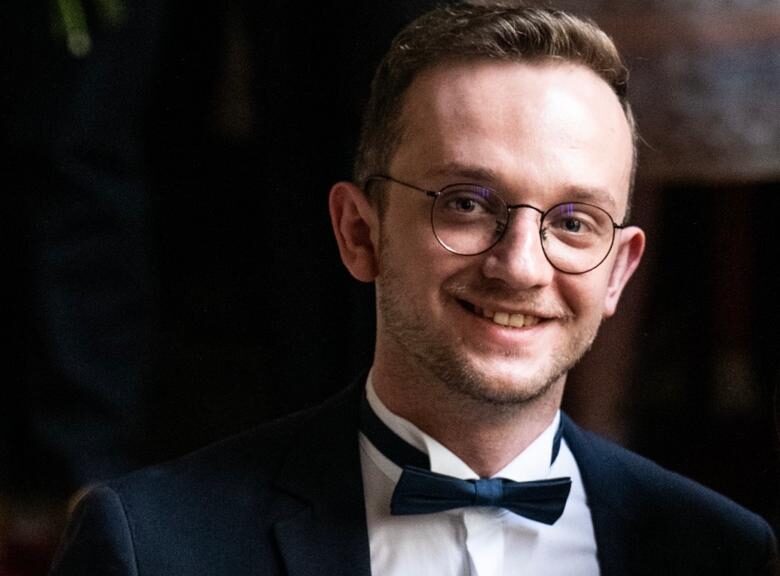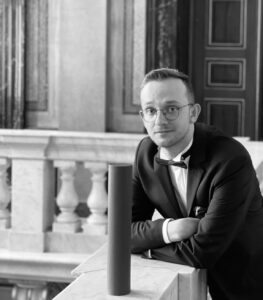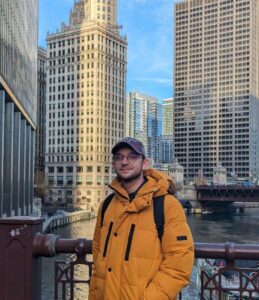The Czech Economic Society annually awards the “Young Economist of the Year” to economists under the age of 30 who enter the competition by sending their original professional work. The 2023 laureate is Theodor Kouro, a PhD in Economics student at CERGE-EI with the work “Let me Choose What I’m Best at: A Natural Field Experiment with Volunteers.”
Congratulations on being awarded the Young Economist of the Year. Could you provide an overview of the research that earned you the Young Economist of the Year award?
Thank you. In a broader sense, my research investigates whether we can motivate effort in the absence of financial incentives. In the context of volunteering and in collaboration with a UNICEF-funded NGO in Albania, I show that volunteers increase both effort and performance when granted the autonomy to choose tasks rather than being assigned random ones. I also show that it is cost-effective to empower volunteers with autonomy rather than ex-post and performance-contingent financial rewards, which do not intend to crowd out the intrinsic motivation to volunteer. Lastly, I provide evidence that those who can choose tasks perform better mainly because they match their abilities with the tasks.
Behavioral and experimental economics are central to your research. How do you believe your work contributes to our understanding of human behavior, particularly in volunteer contexts?
Extensive literature shows that people have a psychological need to control their actions and choices, feel effective and capable, socially connected, and have a sense of belonging. In my project, I show that people choose tasks that represent their abilities better, which aligns with feeling effective and capable. Also, my research provides a way of using financial incentives in a way that intends to boost people’s self-esteem rather than harm their intrinsic motivation.
Your work on “Autonomous motivation and prosocial behavior” investigates the relationship between autonomous motivation, task choice, and volunteering effort. What motivated you to explore this connection, and what key insights have you gained?
While we know why people donate time and money, we need to learn more about motivating them to donate time and help others. The experimental literature on prosocial behavior has mainly focused on how to increase charitable donations. However, research shows that people have a stronger desire to donate time and effort than to donate money.
Given your success in the current projects, are there specific areas within behavioral and experimental economics that you are excited to explore in future research?
Absolutely! Currently, I am developing a large-scale natural field experiment in collaboration with the Ministry of Education in Albania to test whether parents have unrealistic aspirations about their children’s tertiary education and whether we can change these aspirations through individualized information provision. I am also working on understanding the role of hope when people have exceptionally high or unrealistic aspirations.
You are currently on mobility at the Kenneth Griffin Economics Department, University of Chicago. How has this experience contributed to your research and academic growth, and are there specific resources or collaborations that have been particularly beneficial?
It is always nice to receive feedback and constructive criticism by other researchers in my field, especially in one of the best economics departments in the world. I had a couple of presentations at conferences, workshops, brown-bag seminars, lab talks and multiple bilateral meetings with great experimentalists, which helped me understand and frame my research better. I may even collaborate on my project on aspirations with a professor from Booth Schools of Business, which remains the main goal of my visit at the University of Chicago.
As a Young Economist of the Year, what advice would you give aspiring researchers, especially those interested in behavioral and experimental economics?
Being passionate, enthusiastic, and constantly curious should help, especially since it is easy to give up in this profession. What has mainly worked for me is humility (especially when building or exploiting connections in the field), patience, and learning not to accept easy answers. Finally, as in any profession, we must enjoy what we do, even when we fail!
The interview was done by our student Mari Mtchedlisvili.


